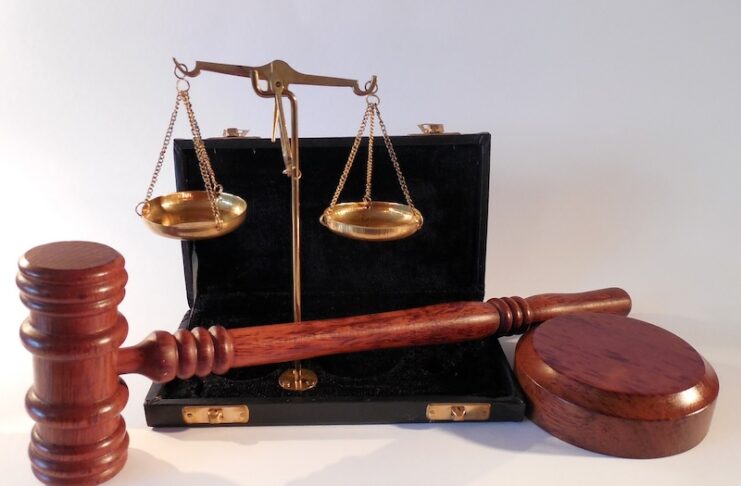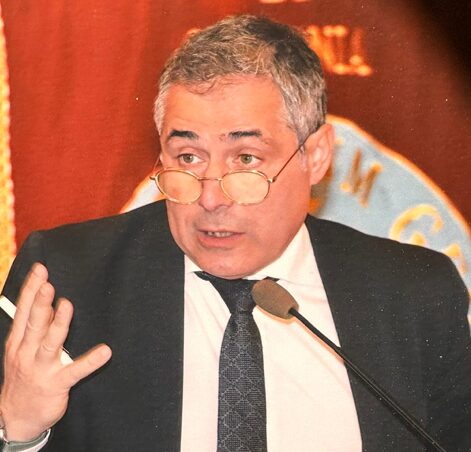From a strange word in 2015, neologism «Brexit» turned the next year for Russians as well as for many other nations into a well-understood expression, almost a house-hold name. The looming exit of Britain from the EU long time ago ceased to be a matter of specialized studies. It has acquired many aspects, meanings and interpretations.
Nowadays, it is a multilayer phenomenon, which surpasses the borders of one country. Brexit is firmly embedded into the all-European context of populism, closely associated with euroscepticism. This populism is of a new kind, because it represents a significant part of the mainstream voters. To some extent, this is the return to the Revolt of Masses against intrenched interests of political establishment. Such a revolt can acquire both progressive and reactionary forms.
Moreover, the issue is not exclusively European. Populism emerged in full force on the other side of the Pond, of the Atlantic, when the baton of populism was passed from the European shores to Donald Trump, if to be more precise, to the half of the American population, who voted for him. As a result, Brexit has led not only to discussions about the future of the EU, but also stimulated deliberations and clashes of opinion about the state of affairs in the wider Euro-Atlantic region.
Few words about Brexit as a political process in the UK. Certain aspects of it were clarified on January 17 in the speech «The government’s negotiating objectives for exiting the EU» delivered by Teresa May at Lancaster House. One of the catch-phrases of that speech, as well as of her speech to Republicans in Philadelphia ten days later, was the idea of «Global Britain», which is confident and sovereign. Also we found out that the UK would pursue a hard Brexit, meaning that the country is leaving both the Single market and the Customs
Union. London is pushing forward the vision of a country liberated from the shackles of the EU. However, many political observers believe that in practice London is going to face a long chain of difficult negotiations, to which the government is not well-prepared.
In the first place, the article 50 of the Lisbon Treaty, which the Prime-minister triggered on March 29, implies two years of negotiations between London and Brussels, the «divorce» per se. It is expected to be finalized in Spring 2019, before the election to the European parliament. Then, in parallel or in a consequential manner, the UK should negotiate with the EU a creation of a new free trade area. So far the European Commission and Michel Barnier, its chief negotiator, have made it clear that Barnier’s mandate covers only the divorce negotiations, not further arrangements. Also, by now it is clear that replication of all existing models, including Scandinavian or Swiss, is not applicable.
Also, there should be intermediate arrangements negotiated between the «divorce» is signed and the FTA is set up. After all that Britain will have to negotiate an agreement to join WTO, which it entered as a country-member of the EU. Apart from that there are 53 countries, with which the EU has different FTA arrangements, and London will need to renegotiate all of them. So the «divorce» might turn out to be the easiest bit with many more negotiation tracks extended far beyond 2019.
All this overwhelming work is on the shoulders of a Brexit department headed by David Davies and a department of international trade led by Liam Fox. They will need hundreds of international trade specialists to conduct these negotiations. Their shortage seems to be obvious. This problem showed through in January due to a well-publicized resignation of Ivan Rogers, permanent representative of the UK to the EU.
Since 2015, Russian specialists in British and European studies and later on the general public have been closely following the evolution of Brexit. Their interest was caused not only by natural curiosity and not only by research in the field of country-studies. As I mentioned earlier, Brexit quickly became a topic closely connected to discussions about the future of the EU, of Europe and the world order in general.
Russia in the beginning of the XXI c. emerged as one of the countries in the midst of the development known as the formation of polycentrism. It became not only an active player in this process, but also an object of policy of leading Western countries and organizations. Since the 2nd part of the 1990s there have been numerous attempts to consolidate and preserve the global international system as a unipolar world order or at least as the world order, led by the US and its closest allies. Usually it is called the liberal international order, which is portrayed as the best system of global governance. Hard power has become a part of this process.
Brexit as a nominal term, signifying the force of centrifugal processes inside Western structures, has both indirect and direct consequences for the interests of Russia. Here we speak not only about economic and other mercantile interests of Moscow. Of course, they play a significant part in considerations about Brexit of any state and society on the Old Continent. Major potential or existing economic problems in the UK are not in the interests of a certain part of the Russian business community. More so if these problems spill over to the Single European market. We should keep in mind that the Russian trade turnover with the EU, even after two years of sanctions war, is about 44%.
Still Brexit is about something much bigger – about a potential to prolong the uncertainty in the international relations. In world affairs there are not so many countries, which are endowed with global responsibility, and Russia and the UK are among such players. From this point of view, for Russia, if to base the analysis on strategic not tactical thinking, further destabilization of the West is not beneficial. And obviously Brexit is a source of exasperation for the EU and potentially for NATO as well. Both organizations are pillars of what is called the collective West.
Of course, it is tempting to applaud Brexit on the grounds that it may have a corrosive effect on those countries and their groupings, which have tried to inflict a substantial damage upon Russia. Indeed, in some European capitals, political circles and supranational structures the scale of anti-Russian sentiments is staggering. As to the US the situation is characterized by some observers as similar to McCarthyism in the late 1940s – earlier 1950s.
But I would not adhere to the logic of applauding Brexit because of Russia’s ostensible interests, as I do not consider the current period in Russia-West relations as a «new norm». More states and structures, which play a significant role in the regional and global governance, are in disarray, less are the chances to solve different problems that present risks to all of us.
Having said that, I do not want to reject the dictum that every cloud has a silver lining. Moreover, there are many in the EU and the US, not to mention the UK itself, who treat Brexit as a progressive development and strive to follow it. There are those, who assess it as a political blunder and miscalculation, but still think that it is not only the UK, which is being liberated from the EU (how Boris Johnson put it at the Munich security conference), but also the EU, which at last has succeeded due to British eurosceptics to get rid of the perennial awkward partner.
Also, it is quite amusing to hear some people in the EU lamenting that Russia does nothing to help the EU to overcome its problems and even that it is interested in the EU falling apart. It resembles reproaches of some Soviet leaders and politicians, who criticized the West, its intelligence services, mass media and propaganda for the break-up of the USSR and for doing nothing to support Gorbachev and his team. And it is also true that sympathy towards the EU has reduced significantly among Russians against the backdrop of economic, financial and political sanctions imposed on Russia by the EU. And I think that this reaction is by all accounts rational.
But even in these circumstances to criticize Russia for undermining the EU is to misread the situation. Firstly, the sanctions war was started not by Russia, but by the EU under the pressure from the US. Secondly, Moscow on many occasions has stated that it is ready to normalize relations on the basis of mutual respect and urged its Western colleagues to resume all bilateral and multilateral mechanisms of co-operation suspended for different reasons. Thirdly, Russia has always stood for major economic projects, with a clear added value for its European partners, for example, Nord Stream 1 and now Nord Stream 2, South Stream, nuclear energy and others. And Sigmar Gabriel at Munich security conference was very clear in supporting Nord Stream 2 on the grounds that it will make the situation with energy security in Europe more stable.
Positive consequences of Brexit for Russia lie not in its illusionary plot to destroy the EU. Even the most creative Western mass media outlets didn’t search for a Russian trace in Brexit in spite of the fact that Nigel Farage on a number of occasions sounded sympathetic to Moscow. If to believe in what Russia is being accused, it is incomprehensible why the Kremlin did not intrude in the political process in the UK tilting the balance in favor of Leavers. Or it did? Imagine the headlines «Teresa May capitalizes on Russia’s hacking the Labour National executive committee».
The answer to all this delusion is clear: both in the UK and in the US the political process ran its own course and ostensible state intrusion from the outside is red herring. The matter is that in the US Democrats and a significant part of Republicans, who lost the election, represented the political establishment, which couldn’t stomach the defeat. Therefore, the «Intruder» should be deposed by any means. Whereas in the UK the referendum was won by one of the groups of the ruling political establishment and it would be especially ridiculous to accuse it of colluding with assertive Russians.
Brexit is primarily a domestic affair for Britain and also for the EU. Other countries and organizations can play only a role of perplexed observers. Results of the UK referendum last June is the consequence of dynamics of the internal political process in the UK as well as drawbacks and discrepancies in the EU governance.
Still, what kind of an advantage can Brexit give to Russia if not in the immediate future, but in the long run? Perhaps, Brexit has become a certain awaking for the political establishment here and in the EU, a watershed in its strategic thinking, which with time may become more realistic and pragmatic. A spin-off from this process may become revelation that a new edition of a Cold war with Russia, the so-called «new Cold war» is a dangerous project, which runs against national interests of all sides.
Against the backdrop of freezing temperature in the bilateral political relations between Russia and the West, and Russia and the UK in particular, there are rays of hope. A step forward is a Report by the House of Commons Foreign Affairs Committee «The United Kingdom’s Relations with Russia» (March 2, 2017). Let me point out to some of its recommendations, which reveal a range of opinions in the British political establishment.
1. «The different narratives of Russian and western foreign policy thinking have been well documented, including in the reports of our predecessor Committees. Despite those warnings, we do not believe that our policymakers have adequately considered the full implications of the differences between western and Russian understandings of this period of history or have drawn the correct, albeit uncomfortable, conclusions from it.
2. The UK faces the possibility of becoming an isolated actor supporting a policy towards Russia that is failing. This could lead to further damage to Britain’s long-term ability to influence Russia.3. We invite the FCO in its response to this report to detail the exact responsibilities of Russia with regard to the Minsk II agreement.
4. The Government and its agencies should be having a regular dialogue with their Russian counterparts about the causes of Islamist extremist violence and the potential strategies to address it.
5. The FCO should use this tournament (2018 World Cup) and others to enhance and repair the wider relationship between the UK and Russia, rather than boycott sport in response to other strained aspects of UK-Russia relations».
Returning to Brexit, it is difficult not to make a conclusion that it is a strategic miscalculation of the British political establishment. The UK now faces a long period of uncertainty in geopolitics, geoeconomics and even in its internal political cohesion. For the EU, Brexit is also an obvious loss, but it shouldn’t become the beginning of its end. If lessons are learned, the EU might be able to modernize itself and to cease looking upon the surrounding world as a territory for cultivation. There is some hope in a Global strategy for the EU foreign and security policy, which Mogherini made public several days after Brexit referendum.1 For example, this applies to the ideas of principled pragmatism, strategic autonomy, reciprocal inspiration between different regional integration projects.
1 Shared Vision, Common Action: A Stronger Europe. A Global Strategy for the European Union’s Foreign and Security Policy. June 2016.





















